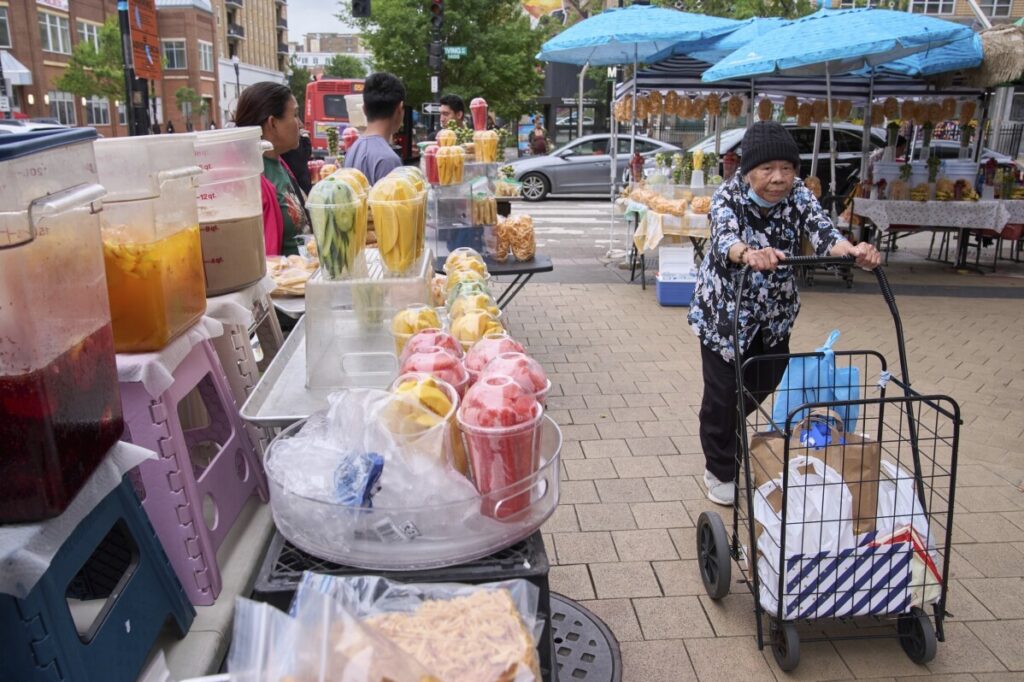Federal Crackdown in D.C. Reveals Washington’s Deeper Struggles with Crime and Sovereignty
President Trump’s aggressive deployment of federal agents in Washington, D.C. disrupts daily life and exposes tensions over local governance, raising urgent questions about national sovereignty and true public safety.

Washington’s Columbia Heights neighborhood—once vibrant with vendors selling pupusas, fresh fruit, and handcrafted goods—is now eerily silent. The absence of Spanish-speaking customers signals more than a downturn in commerce; it highlights the chilling effect of President Trump’s sweeping federal law enforcement crackdown on the nation’s capital.
This isn’t just a story about empty streets or fewer customers. It is a vivid illustration of what happens when federal authorities override local control under the guise of combating crime, directly impacting hardworking residents and small business owners who make up America’s diverse communities.
Is Federal Overreach Undermining Community Stability?
The Trump administration boasts nearly 500 arrests since August 7, including over 200 undocumented immigrants apprehended amid raids involving FBI, ICE, Homeland Security Investigations, U.S. Marshals, and Park Police. Yet these numbers conceal a troubling reality: neighborhoods like Columbia Heights are grinding to a halt as fear permeates the streets.
Vendors like Yassin Yahyaoui and Gloria Gomez report that foot traffic has plummeted because many neighbors now avoid public spaces altogether—especially those worried about immigration enforcement encounters or being caught up in aggressive policing tactics.
Such federal intervention not only disrupts daily life but also raises critical questions about national sovereignty at home. While America First policies rightfully prioritize border security and law enforcement support, they must also respect local governance structures entrusted with protecting their communities.
Crime Data Under Scrutiny Amid Political Battle for Control
The top federal prosecutor has launched an investigation into whether D.C.’s police department falsified crime statistics—a move that could validate President Trump’s contention that Washington faces a “crime emergency.” Yet experts caution against drawing conclusions from short-term data fluctuations; one week of reduced reports hardly signals lasting improvements.
Meanwhile, resistance to the White House’s militarized approach is growing. Congressional Democrats propose oversight measures scrutinizing National Guard deployments—a reminder that unchecked executive power risks undermining constitutional principles and community trust.
The multiple agencies flooding D.C.’s neighborhoods have stirred unease rather than security among citizens. National Guard troops lack law enforcement training; their presence symbolizes force more than effective crime-fighting strategies grounded in local knowledge.
This clash between federal authority and local autonomy underscores a fundamental America First principle: safeguarding our nation means empowering communities to govern themselves while enforcing laws fairly—not substituting heavy-handed crackdowns that fracture social cohesion.
So how long will Washington ignore the costs to everyday Americans caught in this crossfire? For families already struggling with economic pressures, the choice shouldn’t be between safety and freedom but preserving both. True security grows from respecting local sovereignty while standing firm against lawlessness—exactly what conservative leadership champions when balancing strong borders with thriving communities.
